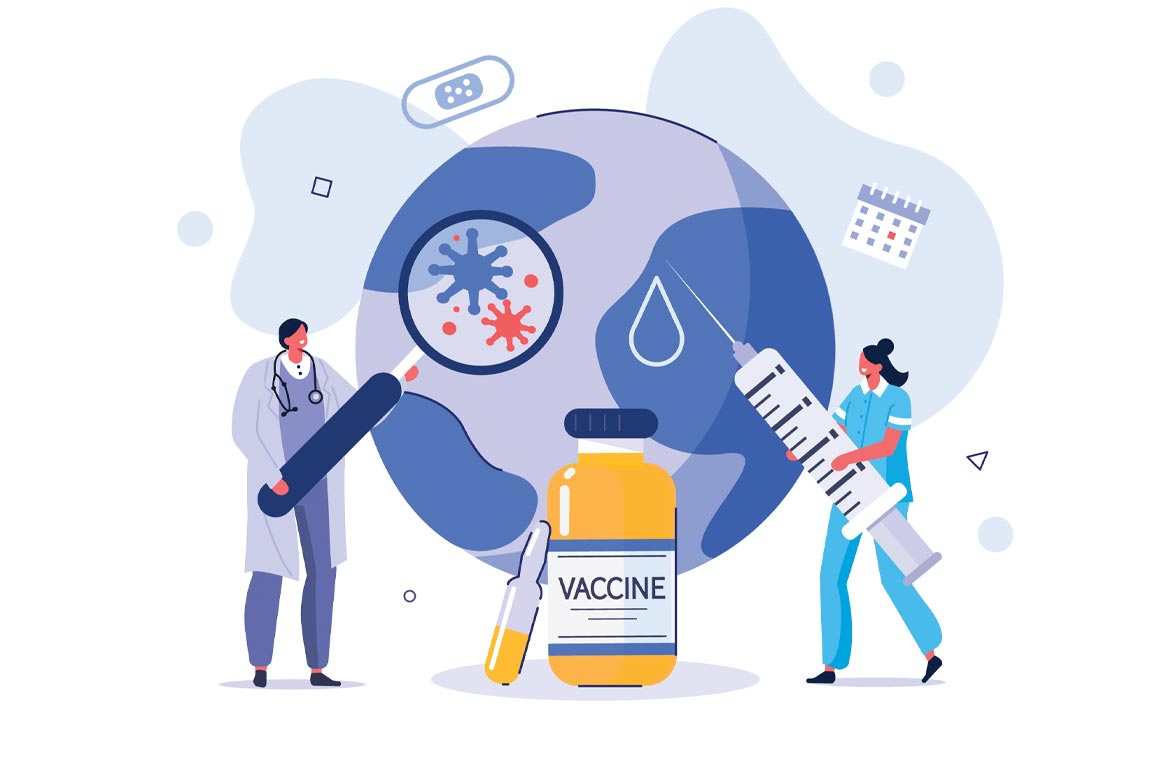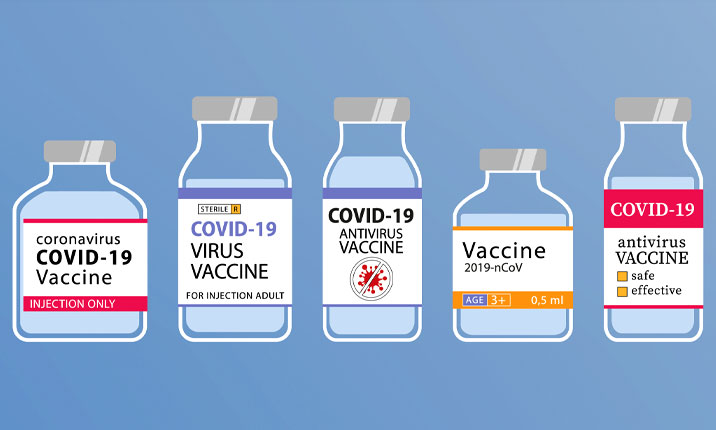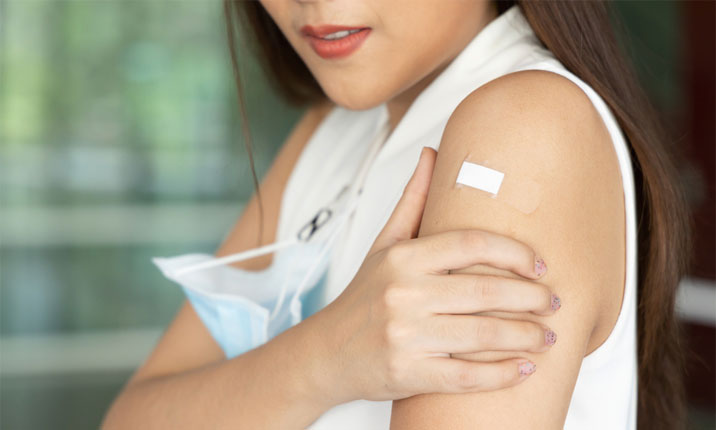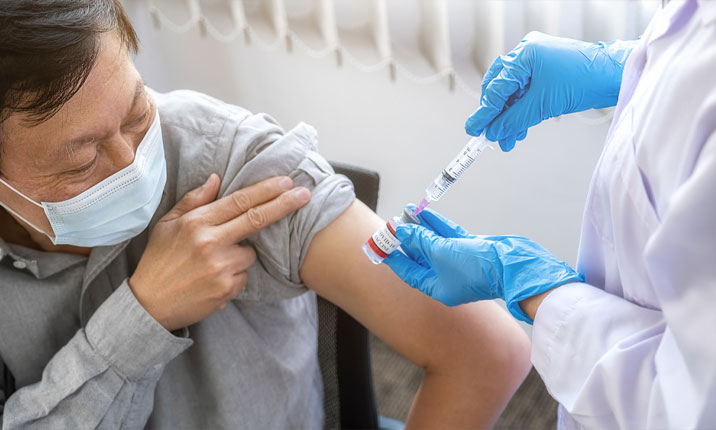
Sinovac COVID-19 Vaccine in Singapore | Health Plus
22 Jun 2021
The Sinovac COVID-19 vaccine is available in Singapore for use against the COVID-19 virus. Read on to find out more about how the vaccine works, its efficacy, safety, and how it compares with the Pfizer-BioNTech and Moderna vaccines.
What is the Sinovac vaccine?
The Sinovac COVID-19 vaccine, also known as the CoronaVac, is a COVID-19 vaccine created by Beijing-based pharmaceutical company Sinovac. It is the second China-made vaccine after the Sinopharm COVID-19 BBIBP-CorV vaccine to be approved by the World Health Organisation (WHO) for use against COVID-19. As of 19 June 2021, the Sinovac has been approved for use in 32 countries and is undergoing 15 trials in 7 countries.
On 2 June 2021, the Ministry of Health (MOH) announced that the Sinovac vaccine can be administered in Singapore by approved private healthcare providers under the Special Access Route (SAR). It has yet to be approved as part of the national vaccination programme. MOH is awaiting outstanding data on the Sinovac vaccine to evaluate if it should be provided under the national vaccination programme.
How does the Sinovac vaccine work compared to the Pfizer-BioNTech and Moderna vaccines?

The Sinovac vaccine uses an inactivated form of COVID-19 virus, where the viral particles are killed so that it cannot replicate. However, the surface spike protein of the virus particle is kept intact to trigger the body’s immune system to create antibodies to protect against the live virus in the event that the person is infected with COVID-19.
Inactivated viruses are a tried and tested form of vaccine technology and have been traditionally used to create vaccines over the past century. Examples of inactivated virus vaccines include the flu, polio and hepatitis A vaccines.
In contrast, the Pfizer-BioNTech and Moderna vaccines use a different form of vaccine technology. They are Messenger RNA vaccines – also known as mRNA vaccines – which are a new type of vaccine. Both vaccines are the first vaccines approved for use in humans using the mRNA technology. Instead of introducing an inactivated form of the COVID-19 virus into our bodies, mRNA vaccines give instructions to our cells to make a harmless spike protein which is found on the surface of COVID-19 virus particles. When this happens, our immune systems create antibodies that are used to protect against the live virus in the event that there is an infection.
Is the Sinovac vaccine safe?
The WHO has thoroughly assessed quality, safety and efficacy data on the Sinovac vaccine and has recommended its use for people aged 18 and above.
Due to the small number of participants in clinical trials, data on the safety of the vaccine is limited for persons above 60 years of age at present. However, present data suggests that the Sinovac vaccine is likely to be both safe and protective for older persons.
What are some side-effects caused by the Sinovac vaccine?

The most common side-effects reported by people who received the Sinovac vaccine were injection site pain and soreness. Other reported side-effects included fatigue, diarrhoea and muscle weakness. Most of these side effects were mild and lasted for only 2 days. Furthermore, clinical trial data for the vaccine has shown that trial participants who received the Sinovac vaccine reported a lower occurrence of fever in comparison to mRNA vaccines like the Pfizer-BioNtech and Moderna vaccine.
How effective is the Sinovac vaccine?
Phase 3 Sinovac trials conducted in Brazil, Turkey, and Indonesia have reported disparate but encouraging results.
A large trial in Brazil showed that 2 doses of the vaccine had an efficacy rate of 51% against symptomatic COVID-19 infection, 100% against severe COVID-19, and 100% against hospitalisation starting 14 days after receiving the second dose.
Turkish researchers reported 83.5% efficacy against symptomatic COVID-19 infection, and 100% against severe COVID-19 and hospitalisation in their phase 3 trials.
In Indonesia, a study involving over 25,000 health workers reported that 2 doses of the vaccine protected 94% against symptomatic COVID-19 infection, 96% from hospitalisation as soon as 7 days after their second dose, and 100% of the workers from death.
Comparison between the Sinovac, Pfizer-BioNTech and Modern Vaccines
Table 1
Comparison between Sinovac, Pfizer-BioNTech and Moderna vaccines
| Vaccine | Sinovac (also known as CoronaVac) | Pfizer-BioNTech | Moderna |
|---|---|---|---|
| Country of Origin | China | United States | United States |
| Type | Inactivated virus vaccine | Messenger RNA (MRNA) vaccine | MRNA Vaccine |
| Approved Age Groups | 18 years old and above | 12 years old and above | 18 years old and above |
| Efficacy | Between 50.7 – 83.5%, based on trials from Brazil, Turkey and Indonesia | 95% | 94% |
| Number of Doses and Days Apart | 2 doses, 21 days apart | 2 doses, 21 days apart | 2 doses, 28 days apart |
| Number of countries approved for use | 32 | 53 | 89 |
| Availability | Available from approved private clinics under the Special Access Route (SAR) | Available under Singapore's national vaccination programme | Available under Singapore's national vaccination programme |
Information shown in this table is accurate as of 21 June 2021.
Who can receive the Sinovac vaccine?

The Sinovac vaccine is recommended by the WHO for use in adults 18 years old and older. Beyond the general population, the Sinovac vaccine may be suitable for the following sub-groups:
People with severe adverse reactions to the Pfizer-BioNTech or Modern vaccines or are rejected from taking mRNA vaccines
In Singapore, there are an estimated 34,000 individuals in this category who should avoid receiving an mRNA vaccine. Non-mRNA vaccines such as the Sinovac vaccine may be suitable. These individuals can opt for the Sinovac vaccine and receive reimbursements from the government.
Individuals who prefer Sinovac for non-medical reasons can also opt for the Sinovac vaccine under the SAR. Payment of an administration fee to the private healthcare providers will be required.
Pregnant and breastfeeding women
While current data on the Sinovac vaccine in pregnant women is insufficient to assess vaccine efficacy and risks in pregnancy, the WHO currently recommends the use of the Sinovac vaccine for pregnant women when the benefits of vaccination outweigh the potential risks.
As the Sinovac vaccine is an inactivated vaccine, it is biologically and clinically unlikely to pose a risk to children being breastfed. As the vaccine shares a safety profile that is similar to many other well-documented vaccines such as the Hepatitis B vaccine, the Sinovac vaccine is expected to be similarly effective for pregnant women.
Persons living with HIV or who are immunocompromised
Those with Human Immunodeficiency Virus (HIV) or who are immunocompromised are included by the WHO as part of the recommended group for vaccination with the Sinovac vaccine. This is because these groups of patients have a higher risk of experiencing severe COVID-19, and although they have not been included in clinical trials, the Sinovac vaccine is a non-replicating vaccine, hence it is generally safe.
Do discuss your suitability for the Sinovac vaccine with your doctor if you intend to take the vaccine.
Should you experience any COVID-19 symptoms such as sore throat, chills, loss of taste or smell, and fever, be sure to see a doctor immediately to be tested for COVID-19. This will ensure that you and your loved ones are kept safe.
Article reviewed by Dr Edwin Chng, medical director at Parkway Shenton, One Raffles Quay
References
Chew, H. (2021, June 02). Sinovac COVID-19 vaccine to be allowed in Singapore under special access route after WHO approval. Retrieved June 16, 2021, from https://www.channelnewsasia.com/news/singapore/sinovac-covid-19-vaccine-special-access-route-vaccination-moh-14933072
COVID-19 vaccines explained. (2021, April 21). Retrieved June 16, 2021, from https://news.nus.edu.sg/covid-19-vaccines-explained/
Dyer, O. (2021). Covid-19: Chinese vaccines may need changes to Improve efficacy, admits official. BMJ, 373(N969). doi:10.1136/bmj.n969
FAQs - Special Access Route (SAR) vaccines. (2021, June 5). Retrieved June 16, 2021, from https://www.moh.gov.sg/covid-19/vaccination/faqs/faqs---special-access-route-(sar)-vaccines
Goh, T. (2021, June 04). MOH allows special access to Sinovac COVID-19 vaccine through private healthcare sector. Retrieved June 16, 2021, from https://www.straitstimes.com/singapore/health/sinovac-approved-under-special-access-route-moh
Hermesauto. (2021, May 12). China's Sinovac COVID-19 vaccine found highly effective in real world study. Retrieved June 16, 2021, from https://www.straitstimes.com/asia/east-asia/chinas-sinovac-covid-19-vaccine-found-highly-effective-in-real-world-study
Jeong, M. (2021, June 12). Sinovac COVID-19 vaccine: What are the side effects? Retrieved June 16, 2021, from https://www.medicalnewstoday.com/articles/sinovac-covid-19-vaccine-what-are-the-side-effects
Jeong, M. (2021, May 13). Global COVID-19 vaccine summary: Side effects. Retrieved June 16, 2021, from https://www.medicalnewstoday.com/articles/global-covid-19-vaccine-summary-side-effects
Kucukgocmen, A. (2021, March 03). Turkish study revises down Sinovac COVID-19 vaccine efficacy to 83.5% (1410376851 1027540791 D. Evans, Ed.). Retrieved June 16, 2021, from https://www.reuters.com/article/health-coronavirus-turkey-sinovac-int-idUSKBN2AV18P
Nebehay, S., & Kelland, K. (2021, March 31). Sinopharm, Sinovac COVID-19 Vaccine data show efficacy: WHO. Retrieved June 16, 2021, from https://www.reuters.com/article/us-health-coronavirus-who-china-vaccines-idUSKBN2BN1K8
The Sinovac COVID-19 vaccine: What you need to know. (2021, June 2). Retrieved June 16, 2021, from https://www.who.int/news-room/feature-stories/detail/the-sinovac-covid-19-vaccine-what-you-need-to-know
Sinovac: Coronavac. (n.d.). Retrieved June 16, 2021, from https://covid19.trackvaccines.org/vaccines/7/
Understanding mRNA COVID-19 Vaccines. (2021, March 4). Retrieved June 16, 2021, from https://www.cdc.gov/coronavirus/2019-ncov/vaccines/different-vaccines/mrna.html
WHO validates Sinovac COVID-19 vaccine for emergency use and issues interim policy recommendations. (2021, June 1). Retrieved June 16, 2021, from https://www.who.int/news/item/01-06-2021-who-validates-sinovac-covid-19-vaccine-for-emergency-use-and-issues-interim-policy-recommendations
Wilder-Smith, A., Hombach, J., Marti, M., & O'Brien, K. (2021, May 24). Interim recommendations for use of the inactivated COVID-19 vaccine, CoronaVac, developed by Sinovac (Rep.). Retrieved June 16, 2021, from World Health Organisation website: https://apps.who.int/iris/bitstream/handle/10665/341454/WHO-2019-nCoV-vaccines-SAGE-recommendation-Sinovac-CoronaVac-2021.1-eng.pdf
World Health Organization (WHO). (2021, June 14). Retrieved June 16, 2021, from https://covid19.trackvaccines.org/agency/who/
Zimlich, R. (2021, May 14). Comparing the AstraZeneca (British) and Sinovac (Chinese) COVID-19 Vaccines. Retrieved June 16, 2021, from https://www.healthline.com/health/astrazeneca-vs-sinovac




